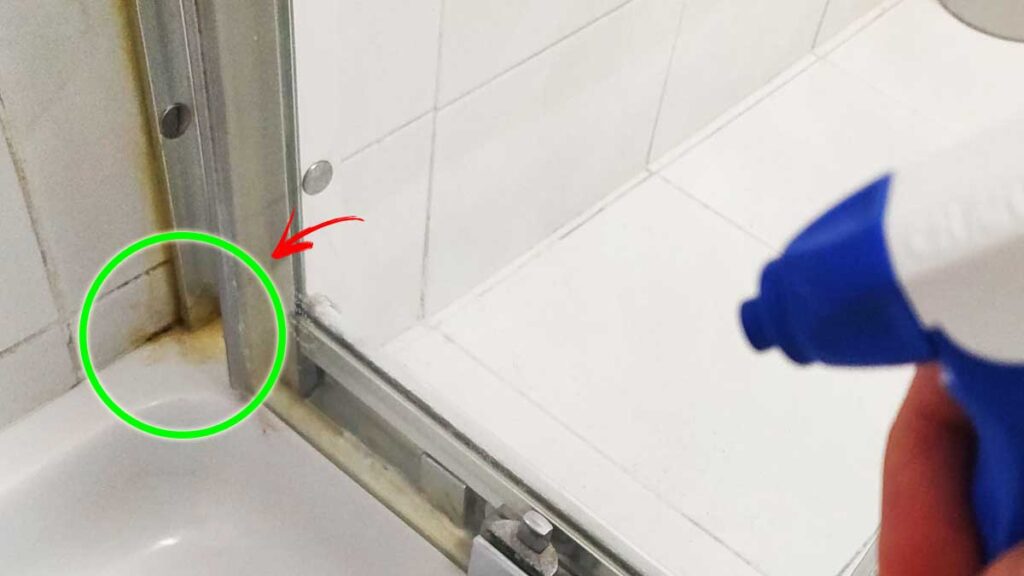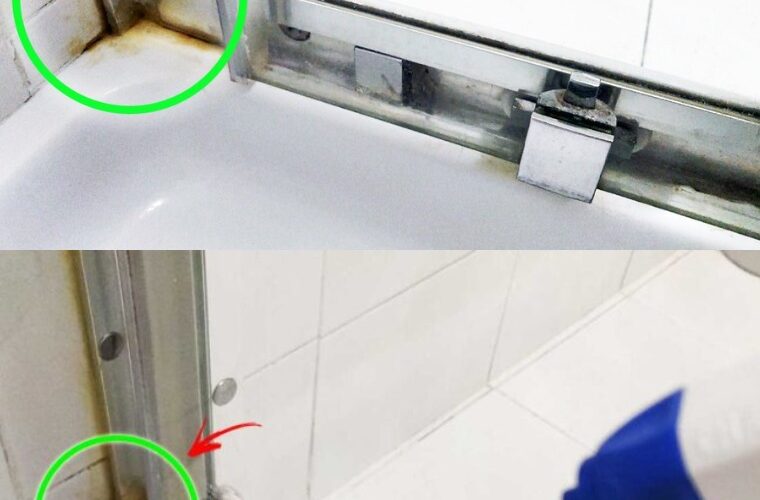ADVERTISEMENT
The bathroom , unfortunately, is the room that accumulates the most humidity. And it is especially the shower area that is most prone to mold.
But removing that blackness in the shower silicone is possible using some natural ingredients .
Let’s see what they are! Remember to always use gloves and a mask when you come into contact with mold stains.
Bicarbonate
The first method you can try to remove mold from silicone in your shower is baking soda .
All you have to do is create a solution made with one liter of water , 3 tablespoons of baking soda, and 3 tablespoons of fine table salt .
Mix all the ingredients and pour the solution into a spray bottle .

For a more effective action , you can also add 3 tablespoons of hydrogen peroxide . Spray the mixture on the moldy silicone in the shower and let it sit for about 20 minutes .
Next, use a toothbrush and gently remove the mold stain. Finally, rinse with plenty of water.
You can repeat the operation several times until the mold is eliminated .
Wadding remedy
When the mold in the shower cabin is persistent, we can try the cotton remedy to get rid of the black stains in the corners and on the silicone. Only a few ingredients are needed, such as hydrogen peroxide, salt, and baking soda . The procedure can be found in this video :
Continued on next page
ADVERTISEMENT
ADVERTISEMENT
Lemon juice
An additional very effective remedial way to remove silicone mold from your shower is to use lemon juice .
Oh I forgot! If you like these Natural Tips I can send them to you every day directly by WHATSAPP! ;Subscribe to my channel! I will be waiting!.
Start by pouring some baking soda directly onto the mold stain.
Then wet the silicone with warm water and leave the baking soda on for half an hour. .
Meanwhile, add water and the juice of one lemon to a spray bottle .
Sprinkle a little of this mixture on the stain sprinkled with baking soda. Next, use the abrasive side of a sponge to remove dirt and mildew, not by rubbing but by tapping . Continue spraying the solution several times until the silicone is completely whitened. .
White vinegar
When it comes to mold in the shower , you cannot ignore the effectiveness of white wine vinegar , an ingredient also widely used to remove lime stains and for various household cleanings:
Therefore, create a solution composed of 2 cups of vinegar 1 liter of water . The resulting mixture will be excellent for cleaning even bathroom tiles and ceramics .
Pour everything into a spray bottle and spray the mixture on the moldy silicone. Leave it on for about 15 minutes and rinse.
Citric acid
Lastly, you can use citric acid , a greener alternative to white wine vinegar.
This ingredient is also very effective in the case of mold stains, thanks to its anti-limescale action and its whitening power.
Create a solution composed of one liter of water and 150 grams of citric acid. Pour some of the mixture onto the mold stain and let it sit for about 15 minutes.
Then, use a sponge and rub gently to remove all the dirt.
But the uses of citric acid don’t end there! The same solution is versatile for a wide variety of domestic problems, as you will discover in this video :
Remember to contact a specialist in case of serious mold stains. Below we remind you.
How to remove black mold from silicone in the shower cabin ?
You can remove black mold from silicone in the shower cabin by spraying a little of the classic hydrogen peroxide from the supermarket. Leave it on for 20 minutes and dry it with a sponge.
Why does shower silicone turn black?
The silicone in the shower turns black from humidity. We shower every day and don’t always ventilate the room or remember to dry all the components.
How do I remove mold from the shower stall? .
Try spraying a solution of hot water and sodium percarbonate, letting it sit for half an hour. Shower stall mold should be reduced.
How not to create mold in the bathroom ?
To avoid the appearance of mold in the bathroom, remember to ventilate the room very often, especially when you use the shower or bathtub. The vapors generate humidity, which encourages the appearance of mold.
ADVERTISEMENT
ADVERTISEMENT
